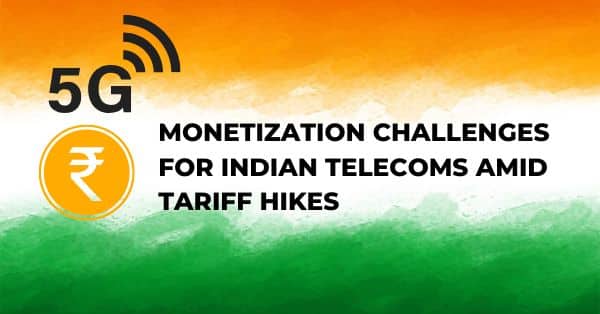In the December quarter, the average revenue per user (ARPU) for Bharti Airtel Ltd, Reliance Jio, and Vodafone Idea Ltd ranged between ₹135-193, marking a modest 1-3% increase sequentially. The growth potential for Indian telecom companies due to the 5G rollout is significant, yet it comes with challenges like substantial capital expenditures (CAPEX) and increased debt. Consequently, investors are primarily concerned about the companies’ inability to raise tariffs.
Airtel highlighted that a ₹300 ARPU is essential for an acceptable return on capital employed, which was below 9% for its India business. However, the short-term outlook for tariff increases remains weak. Jefferies India believes that Jio’s underperformance in subscriber numbers and Bharti’s decision to capture market share from Jio in rural areas could postpone tariff hikes.
The competitive landscape is a key factor in delaying tariff hikes.
Avishek Datta, a research analyst at Prabhudas Lilladher, stated that elevated churn rates in the industry hinder any significant price hikes. Until subscriber migration slows down and operators reach a consensus, the reluctance to raise tariff rates is expected to continue.
Revenue growth for these companies is anticipated to decelerate in upcoming quarters, and there is no clear timeline from management for hikes. Additionally, limited 5G use cases and a lack of monetization opportunities in the short term do not bode well for ARPU increases. Telecom companies are concentrating on expanding 5G penetration and migrating users from 4G to 5G services. An anonymous analyst commented that 5G premium monetization is unlikely until this transition occurs.
Airtel and Jio are expected to gain market share at Vodafone Idea’s expense, but the extent of the benefit remains uncertain. Airtel’s shares have dropped by 11% from their 52-week high, while Vodafone Idea’s shares have plunged by nearly 42%. Government reforms will support Vodafone in the short term, but delays in fundraising continue to be a burden. According to JM Financial Institutional Securities, Vodafone Idea’s ARPU must soar to about ₹380 by FY27 to meet its payment obligations.
Jefferies asserts that the long-term outlook for tariff hikes has improved due to the government acquiring a 33% stake in Vodafone Idea. However, the weak near-term outlook on tariff hikes may limit potential upsides for these stocks.

























